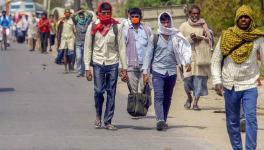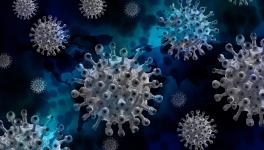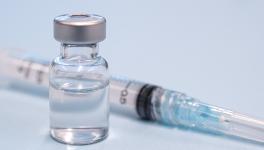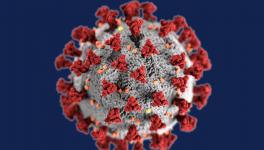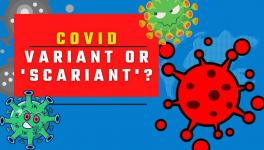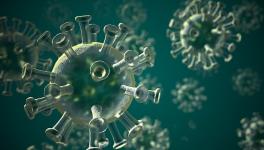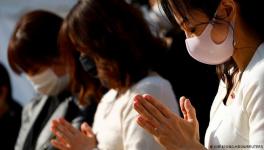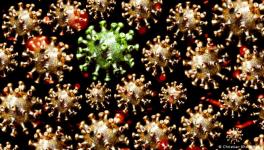How Valid and Useful are Speculations About Covid-19 Biology
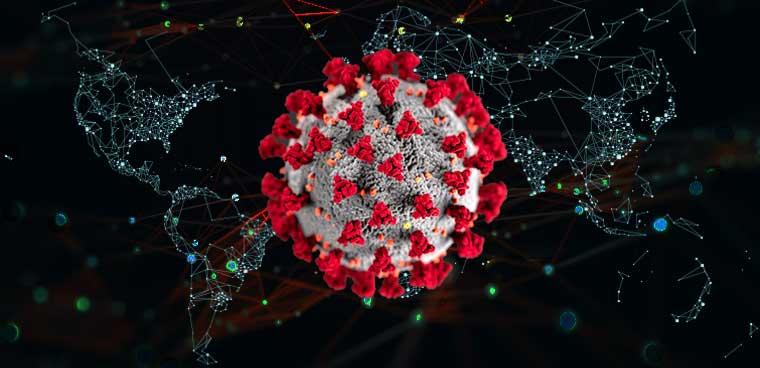
The Covid-19 pandemic has coincided with developments in public-domain science, open-access scientific publishing, and science-related reportage in both traditional and social media, to provide an unprecedented flood of specialised information. Many scientists as well as science journalists are trying to make scientific sense of the pandemic for all of us.
These efforts are not in the realm of the pseudo-science circulating about all sorts of quack remedies and/or rituals such as bovine products and yagnas giving ‘protection’ against Covid-19. They are far more careful and well-intentioned efforts to provide a variety of scientific perspectives for public information. Yet, it is becoming increasingly evident that many if not all of them are suffering from a set of basic errors that lead them to becoming vehicles of unintentional disinformation.
It is essential to keep in mind that almost none of this scientific material being discussed in the public domain is based on scientific research papers. Most of them refer to ‘preprints’ uploaded by authors on internet sites. Such a ‘preprint’ is not a paper carefully considered, reviewed and accepted as scientifically valid. Preprints often contain, not mistaken, but quite possibly, half-baked research. The other category of scientific material that public debate is based on is commentaries and opinion pieces written by scientists themselves. Sadly but understandably, this material also carries limited value, since it contains simplifications and approximations that may not be quite valid (and since none of us, scientists or not, can avoid the human urge to show off the ‘importance of our work).
As a result, we are making a major basic error. All speculations based on so-called ‘patterns’ of speed and extent of spread and of relative severity of Covid-19 illness are fundamentally mistaken. This is because these kinds of association or correlation studies provide value only when all the evidence is in, after the epidemic. Using them to draw any firm conclusions in an ongoing situation, when the data themselves change from week to week, is a category error. This is not to say that all or any of these associations or correlations are wrong. Some of them may well turn out to be right. The trouble is that we have no way of saying at the moment which ones are wrong because they will disappear as more evidence emerges, and which ones will turn out to be sound.
Consider some examples.
A recent preprint has been interpreted widely to suggest that universal BCG vaccination is correlated with lower rates of Covid-19 deaths and illness. The claim is that, if older people, who are more susceptible to serious Covid-19 illness, were BCG-immunised because their countries started universal BCG immunisation many decades ago, they will be somewhat protected. All this has then been re-interpreted to suggest that we should start BCG vaccination now.
There are a number of difficulties with the analysis itself, which have been pointed out at pithy length by doctoral students from McGill university. In addition to their concerns, the analysis does not calculate the relative severity of disease. It does not address how there are 'more' deaths and cases in high-income countries than in low-income countries even when both have had universal BCG immunisation. Clearly, the analysis is a very limited one. Further, this is just one correlation. It is quite possible that, if other people look for other such correlations, they will find them. In fact, there is such an example showing that Covid-19 severity and the geo-climatic zones of countries are correlated. These two groups of researchers do not seem to have taken each other's correlations into account, confusing matters enormously.
On these very very tentative and uncertain bases of still-emerging pandemic pattern data, various commentators are building yet further rickety layers of biological rationales for these patterns that may not be real in the first place. This becomes even more of a problem for India because, since India is still in the early stages of the Covid-19 pandemic, the appearance is that India in particular and countries of the global South in general are ‘less affected’ than ‘Western countries’.
Whether this is true or not is in serious doubt, and will only be clarified over time. Yet, it seems to have become very attractive to provide a range of biological explanations for this correlation of doubtful veracity, in part because it apparently gives us the possibly misplaced hope that the pandemic will pass us by, and in part because it allows ‘us’ to feel superior in some strange way to ‘Westerners’ and to the ‘Chinese’.
Thus, there are speculative claims that weather—temperatures, in particular—will control the survival and spread of SARS-CoV-2 by ‘killing it off’, which is based, at best, on a massive stretch from some very modest original data relating to the temperature sensitivity of the virus, with no corroboration so far from real life.
Similarly, the BCG correlation is being tied to a relatively recent demonstration of ‘trained innate immunity’, and to the well-known fact that BCG immunisation leads to fairly long-lasting inflammation in the body. Put these together, and we can claim that BCG will give long-lasting ‘trained innate immunity’ against serious illness in Covid-19, without having to provide any evidence whatsoever in support of the claim. Another layer in this series of claims is based on reports that a mycobacterial immuno-therapeutic against leprosy, discovered and licensed in India, may also lead, like BCG (‘but even better’), to long- lasting inflammatory changes in the body. And hey presto, the idea crystallises into this ‘vaccine’, Leprovac, becoming a useful tool against Covid-19. Yet, there are many different directions that inflammatory immunity can take, and it is not at all clear that anti- viral, specifically anti-SARS-CoV-2 immunity can be generated like this, and the immune system does not generally seem to provide very much of such broad-spectrum 'protection' for any length of time.
While we could always say that ‘anything that has even a small chance of success should be tested’, this extremely flimsy pyramid of far-fetched speculation, in which each small brick of a fact may well be real in a limited context, but their connections to each other are tenuous at best, verges on unintended pseudo-science. It is therefore no surprise that many responses to these claims begin to want to provide these 'treatments' to people at large, rather than carefully trying them out to see if they work even a little bit.
And then there are the other arguments to rationalise the possibly non-existent Indian immunity to SARS-CoV-2, by arguing that Indian have ‘better immunity’. Never mind that India’s Covid-19 mortality rate is pretty much average. Some arguments say that this ‘better immunity’ is because ‘we’ ‘battle’ all the time with all sorts of infections in our (poor) environment and therefore have much ‘more’ or ‘stronger’ immunity, whatever that means. Never mind that there is no evidence, nor reason, to make such a sweeping claim, leave alone making it about immunity to SARS-CoV-2.
The other track such arguments are taking is that ‘Indians’ have ‘better’ immune response genes because ‘we’ have been under ‘attack’; and therefore evolutionary selection for a long time. Again, never mind that there is no basis for any such global ‘improvement’ of ‘immunity’ in any group anywhere. All sorts of limited studies are being dragged out and stretched to provide a facade of supporting evidence for this argument. For example, a claim that Indians have more natural killer cells that detect and kill virus-infected cells is commonly associated with a 2008 paper that says nothing of the sort. A guess that Indian HLA gene diversity may perhaps provide ‘protection’ from Covid-19 is based on no evidence whatsoever.
And finally, every drug that we can think of as being even vaguely plausible is being hopefully looked at and pushed as a ‘game-changer’ from a so-called ‘leader of the free world’ (whatever that is). This ranges from odd drugs like chloroquine and its relatives to anti-HIV drugs and the like, which have variable modest effects on the growth of coronaviruses like SARS-CoV-2. We should keep in mind our prior experience that, unlike antibiotics in bacterial diseases, even the few effective antiviral drugs we know of are not dramatically effective in acute diseases, especially when given relatively late in the course of the disease. Nonetheless, the pandemic is certainly more than good enough reason for us to test as widely and empirically (meaning without preconceptions) as possible in our search for effective drugs. But it also means that we need to wait and test rigorously, rather than start panic-driven hoarding and worse, inappropriate usage, of what currently amounts to quack remedies.
We know what we need to do; maintain physical distancing, wear at least makeshift masks, and worry inclusively about each other, about our communities, even more than we worry about ourselves. We know what we need our ‘experts’ to do; work at finding new solutions, and talk to us, calmly, honestly and consistently, about what they are doing and why, and about the promise and the limits of what progress they are making. Let’s stop telling each other ghost stories or fairy tales.
Dr. Satyajit Rath is a scientist who was formerly associated with National Institute of Immunology. He is currently Adjunct Faculty in Indian Institute of Science Education and Research
Get the latest reports & analysis with people's perspective on Protests, movements & deep analytical videos, discussions of the current affairs in your Telegram app. Subscribe to NewsClick's Telegram channel & get Real-Time updates on stories, as they get published on our website.









